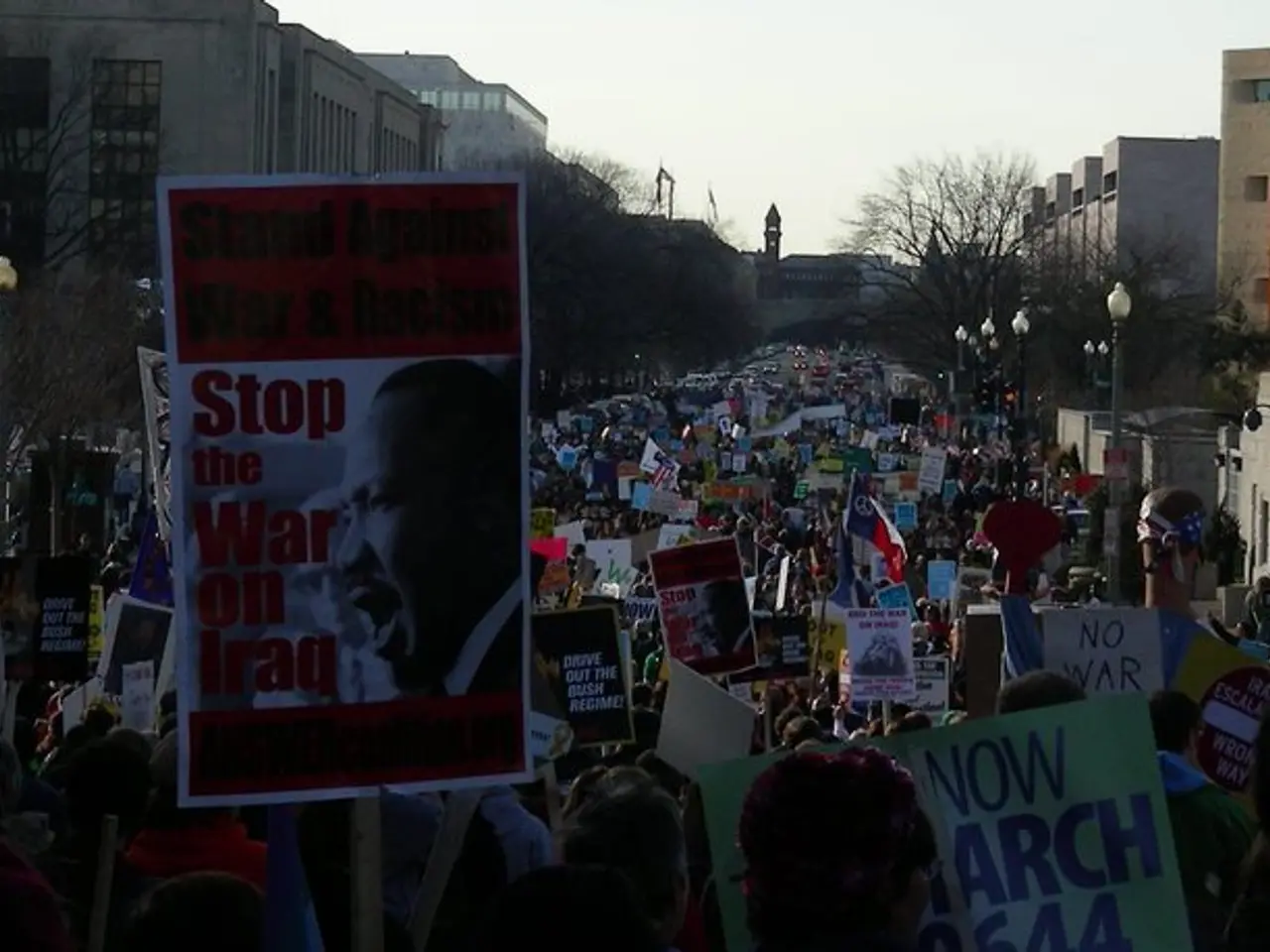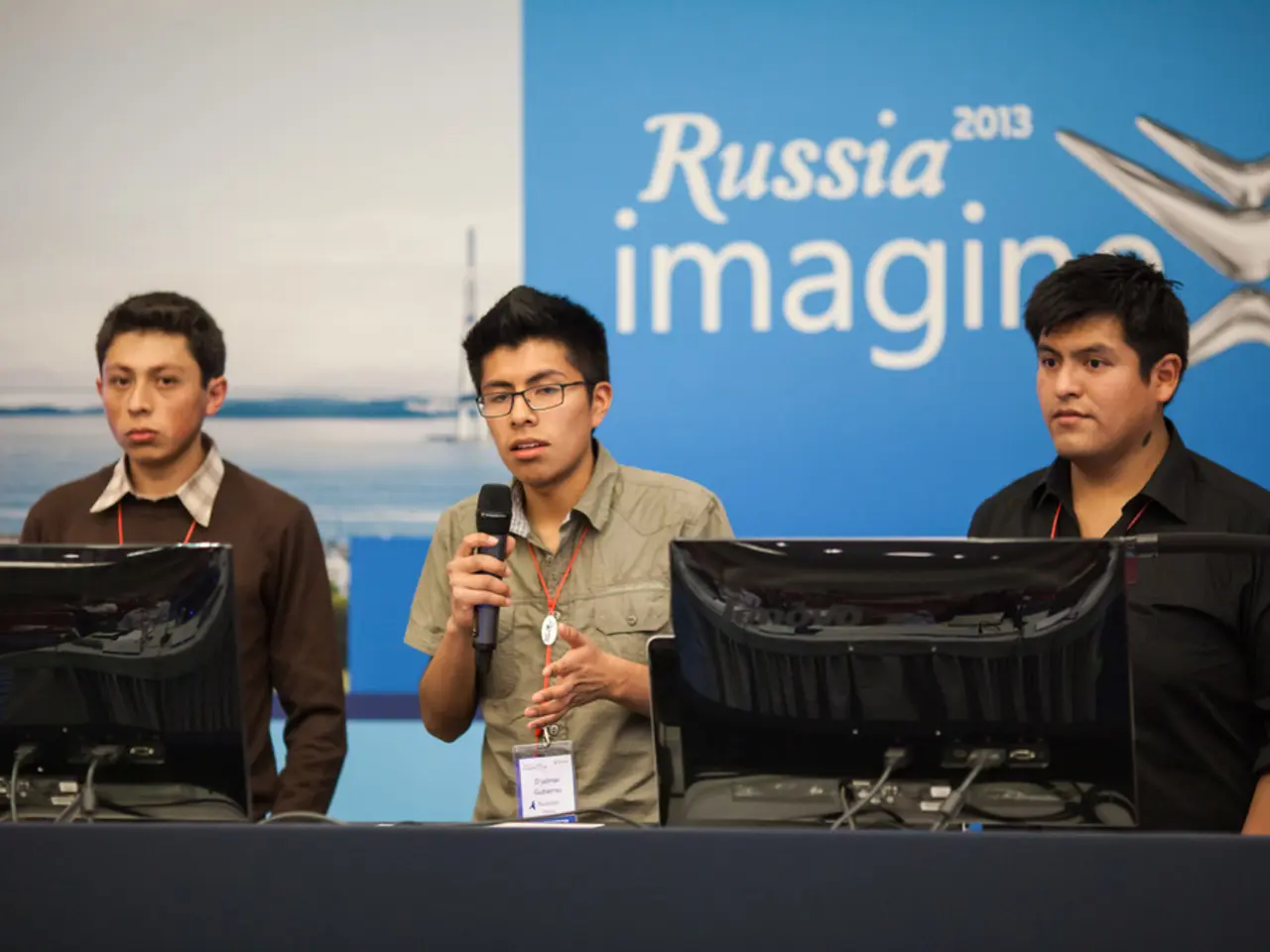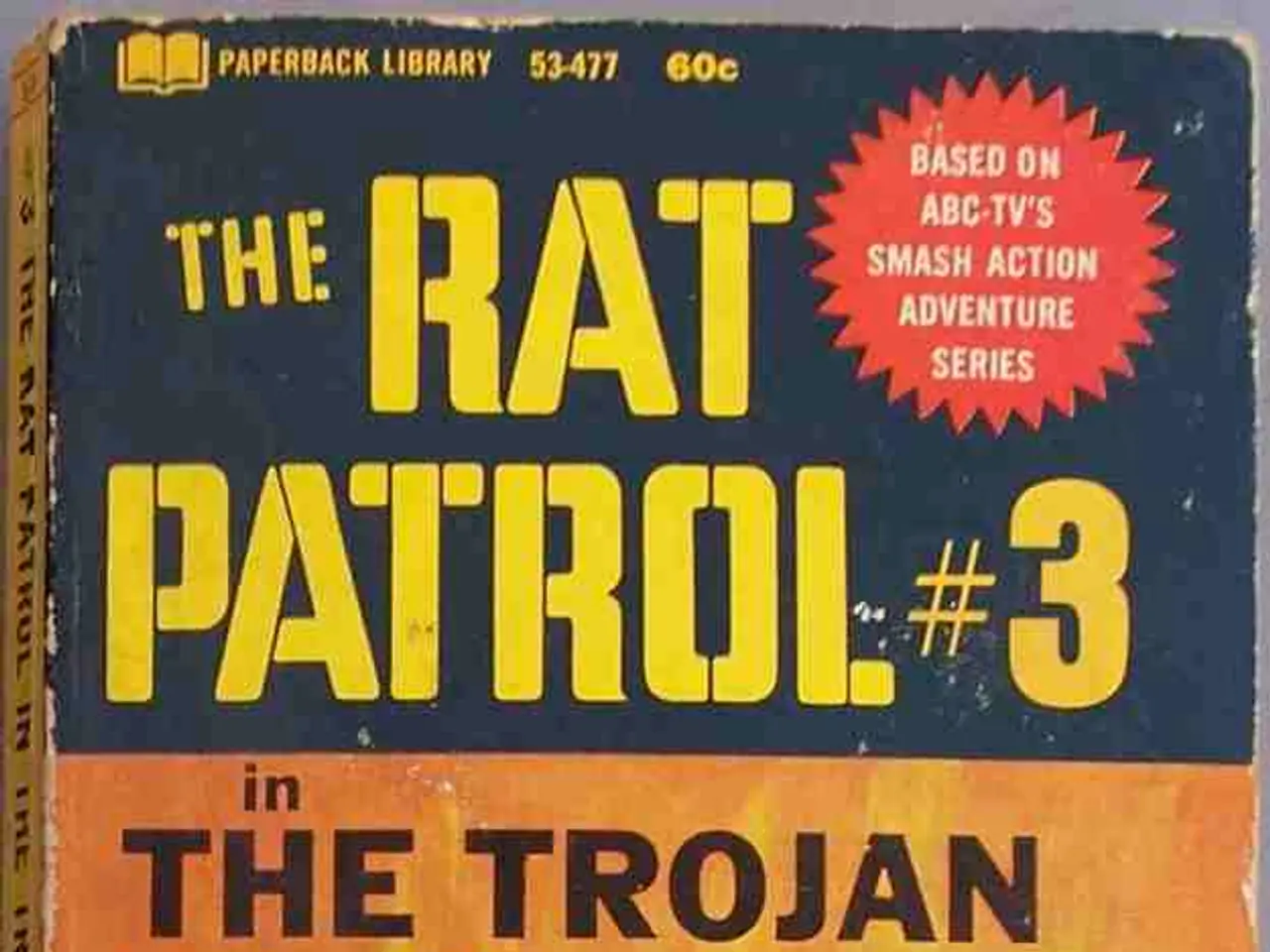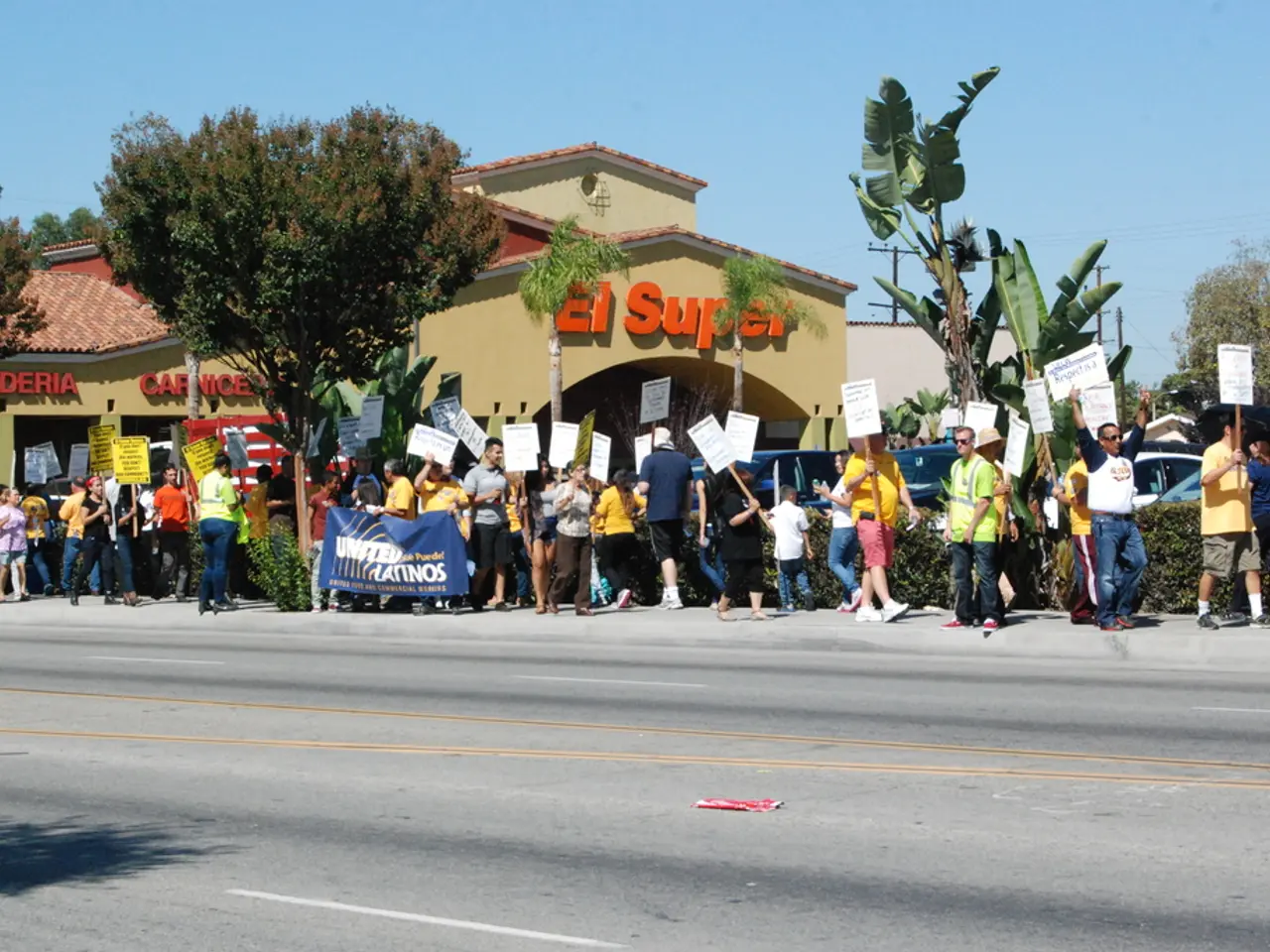Armed civilians organized in groups, operating beyond regular military control. - "Right-wing protest march halted by a show of paramilitary presence"
In the heart of North Rhine-Westphalia (NRW), Germany, a right-wing demonstration took place in the city centre of Münster last weekend. The event, which aimed to advocate for a gravesite for a deceased neo-Nazi in Dortmund, was met with strong opposition from an alliance named "No Meter for Nazis." Around 1200 counter-demonstrators participated, according to police reports.
The demonstration, however, was halted due to a suspected violation of the ban on violence and intimidation, as stipulated by the new assembly law in NRW. The procession was stopped 300 meters short of the Ludgeriplatz, and the demonstrators were required to comply with police measures, including rolling up their flags.
The city centre was extensively cordoned off, and bus services were suspended as a precautionary measure. A robust police presence was evident, with mounted police accompanying the procession and the federal police enforcing a weapons ban at Münster's main station.
The right to assembly is guaranteed under Article 8 of the German Basic Law (Grundgesetz), but it is regulated to ensure public safety. The federal Versammlungsgesetz, and corresponding state laws, require organizers to notify authorities in advance of demonstrations, allowing authorities to impose conditions or ban gatherings if there is a risk of violence or if demonstrations have paramilitary characteristics.
Section 129 of the Strafgesetzbuch prohibits the formation of or participation in a “criminal organization” with specific aims, which includes activities related to terrorism, violent extremism, or paramilitary training. Parading in uniform—symbolizing paramilitary or extremist affiliation—or carrying weapons or dangerous objects is strictly regulated and often prohibited, especially at political demonstrations.
NRW has additional measures and police guidelines, such as enhanced surveillance of known extremist groups, the prohibition of specific symbols (e.g., banned organizations), and the power to impose “Verbotszonen” (prohibition zones) or “Waffenverbotszonen” (weapons-free zones) in public spaces, especially during or before large protests.
In light of increased scrutiny on far-right and extremist groups, enforcement has been tightened, with special attention to any paramilitary-style activity during demonstrations. There are also discussions about banning members of extremist parties from certain public sector jobs, reflecting a broader societal and governmental response to right-wing extremism.
In Münster, authorities closely monitor right-wing demonstrations. If there is credible evidence of paramilitary or violent intent, police may impose conditions such as route restrictions, prohibitions on wearing uniforms, or outright bans. Violations—such as the use of paramilitary-style clothing, chants, or symbols associated with extremist groups—may lead to dissolution of the assembly, arrests, and criminal prosecution.
The local authorities also manage counter-demonstrations to prevent clashes. The concept of “Raum” (space) is key in NRW, as extremist groups attempt to claim public spaces through demonstrations, marches, or provocations. Authorities use legal tools to deny them this symbolic victory and to prevent the normalization of extremist presence in the city.
In summary, paramilitary-style demonstrations are strictly regulated in NRW and Münster through a combination of federal and local laws, proactive police work, and ongoing legal measures against extremist organizations. Enforcement focuses on preventing violence, maintaining public order, and curtailing the symbolic appropriation of public spaces by extremist groups.
- In response to the increasing threats posed by extremist groups, there are ongoing discussions about implementing community policies that ban members of extremist parties from certain public sector jobs, reflecting a broader societal and governmental response to right-wing extremism in North Rhine-Westphalia (NRW).
- The recent right-wing demonstration in Münster, aimed at advocating for a gravesite for a deceased neo-Nazi, was halted due to a violation of the ban on paramilitary-style activity, as regulated by the new assembly law in NRW, which includes strict regulations against parading in uniform, carrying weapons, or using symbols associated with extremist groups.





